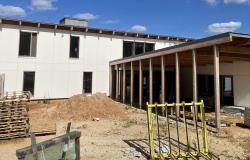Research from the University of Michigan reveals that sleep enhances memory formation through the activation of neurons, while sleep deprivation significantly impairs this process, affecting long-term memory retention.
Sleep, or lack thereof, significantly affects neurons in the hippocampus.
Two studies from the University of Michigan show that sleep is essential for memory because it allows specific neurons to reactivate and replay experiences. Sleep deprivation disrupts this process, leading to impaired memory retention. Even catching up on sleep does not completely restore memory reactivation, highlighting the essential role of sleep in memory consolidation.
Imagine you’re a student, it’s exam week and you’re preparing for an important exam: are you having a sleepless night or are you resting? As many people with groggy eyes who stare blankly at an exam know, lack of sleep can make it extremely difficult to remember information.
Two new studies from the University of Michigan reveal why and what happens in the brain during sleep and sleep deprivation to help or harm the formation of memories.
Specific neurons can be adapted to specific stimuli. For example, rats in a maze will have neurons that fire once the animal reaches specific locations in the maze. These neurons, called place neurons, are also active in people and help them navigate their environment.
But what happens during sleep?
“If this neuron responds during sleep, what can you infer? said Kamran Diba, Ph.D., associate professor of anesthesiology at the UM School of Medicine.
A study, summarized in the journal Nature and led by Diba and former graduate student Kourosh Maboudi, Ph.D., studies neurons in the hippocampus, a seahorse-shaped structure deep in the brain involved in memory formation, and discovers a way to visualize the adjustment of neural patterns associated with a location while an animal was sleeping.
The role of sharp waves
A type of electrical activity called sharp ripples emanates from the hippocampus every two seconds, over a period of several hours, during states of rest and sleep.
Researchers were intrigued by the timing of the ripples and the distance they traveled, apparently to broadcast information from one part of the brain to another.
These activations are thought to allow neurons to form and update memories, particularly of place.
For the study, the team measured a rat’s brain activity during sleep, after the rat completed a new maze.
Using a type of statistical inference called Bayesian learning, they were able for the first time to determine which neurons would respond at which locations in the maze.
“Let’s say a neuron prefers a certain corner of the maze. We might see this neuron firing with others that show a similar preference during sleep. But sometimes neurons associated with other areas can co-activate with that cell. We then found that when we put it back into the maze, the location preferences of the neurons changed depending on which cells they fired with during sleep,” Diba said.
The method allows them to visualize the plasticity or representational drift of neurons in real time.
It also supports the long-standing theory that reactivation of neurons during sleep partly explains why sleep is important for memory.
Given the importance of sleep, Diba’s team wanted to study what happens in the brain in the context of sleep deprivation.
Impact of sleep deprivation
In the second study, also published in NatureThe team, led by Diba and former graduate student Bapun Giri, Ph.D., compared the degree of neuron reactivation (where neurons that fired during maze exploration fire spontaneously to again at rest) and the sequence of their reactivation (quantified as replay), during sleep vs. during sleep loss.
They found that the firing patterns of neurons involved in reactivation and replay of the maze experience were higher during sleep than during sleep deprivation.
Sleep deprivation corresponded to a similar or higher rate of sharp wave ripples, but lower amplitude waves and lower power ripples.
“In almost half of the cases, however, the reactivation of the maze experience during abrupt undulations was completely suppressed during sleep deprivation,” Diba said.
When the sleep-deprived rats were able to catch up, he added, although reactivation rebounded slightly, it never matched that of rats that slept normally. Additionally, rereading was also impaired, but was not recovered when lost sleep was regained.
Since reactivation and replay are important for memory, the results demonstrate the detrimental effects of sleep deprivation on memory.
Diba’s team hopes to continue examining the nature of memory processing during sleep and why they need to be reactivated as well as the effects of sleep pressure on memory.
The research was funded by the National Institute of Mental Health and the National Institute of Neurological Disorders and Stroke.
Other authors include Hiroyuki Miyawaki, Caleb Kemere, Nathaniel Kinshy, Utku Kaya and Ted Abel.






